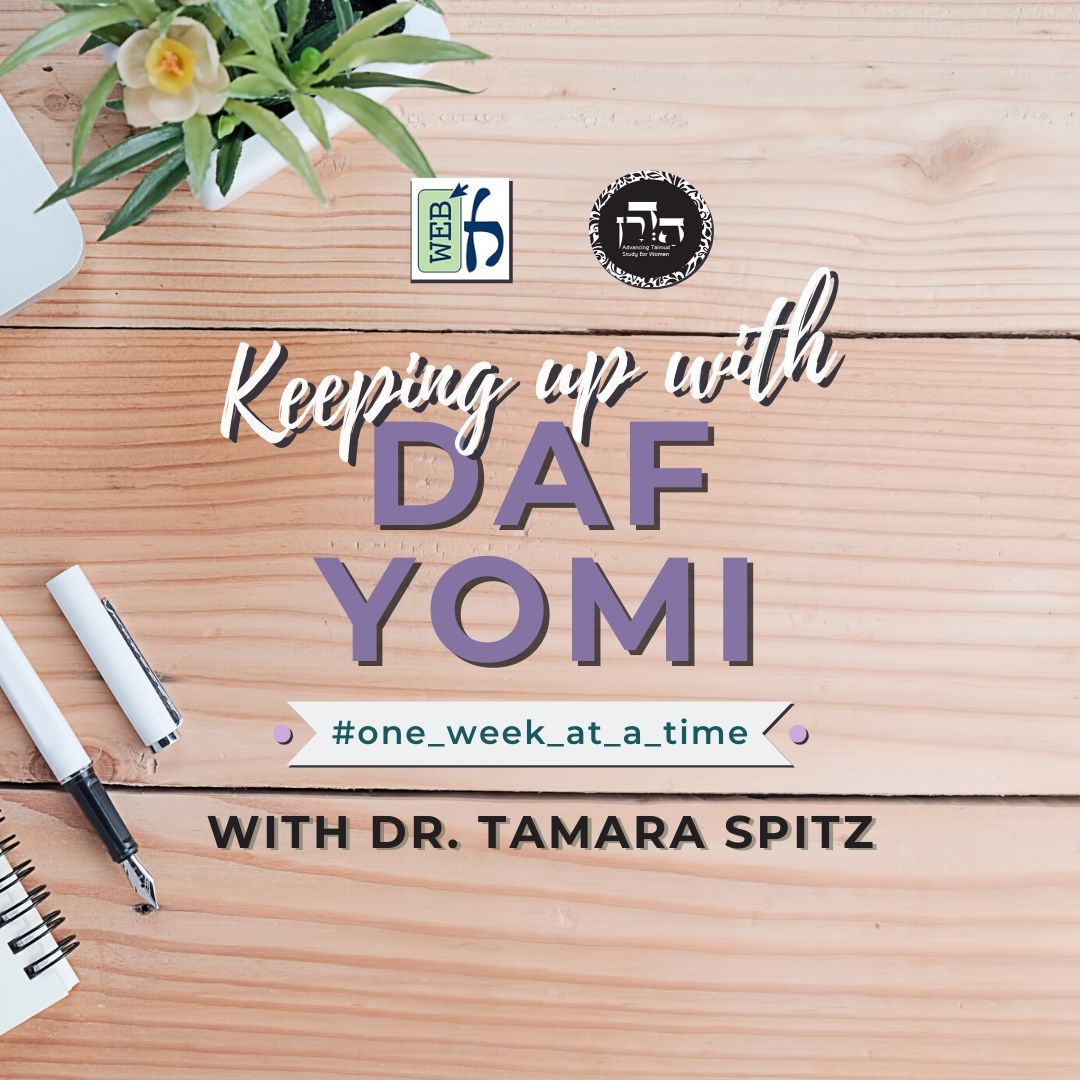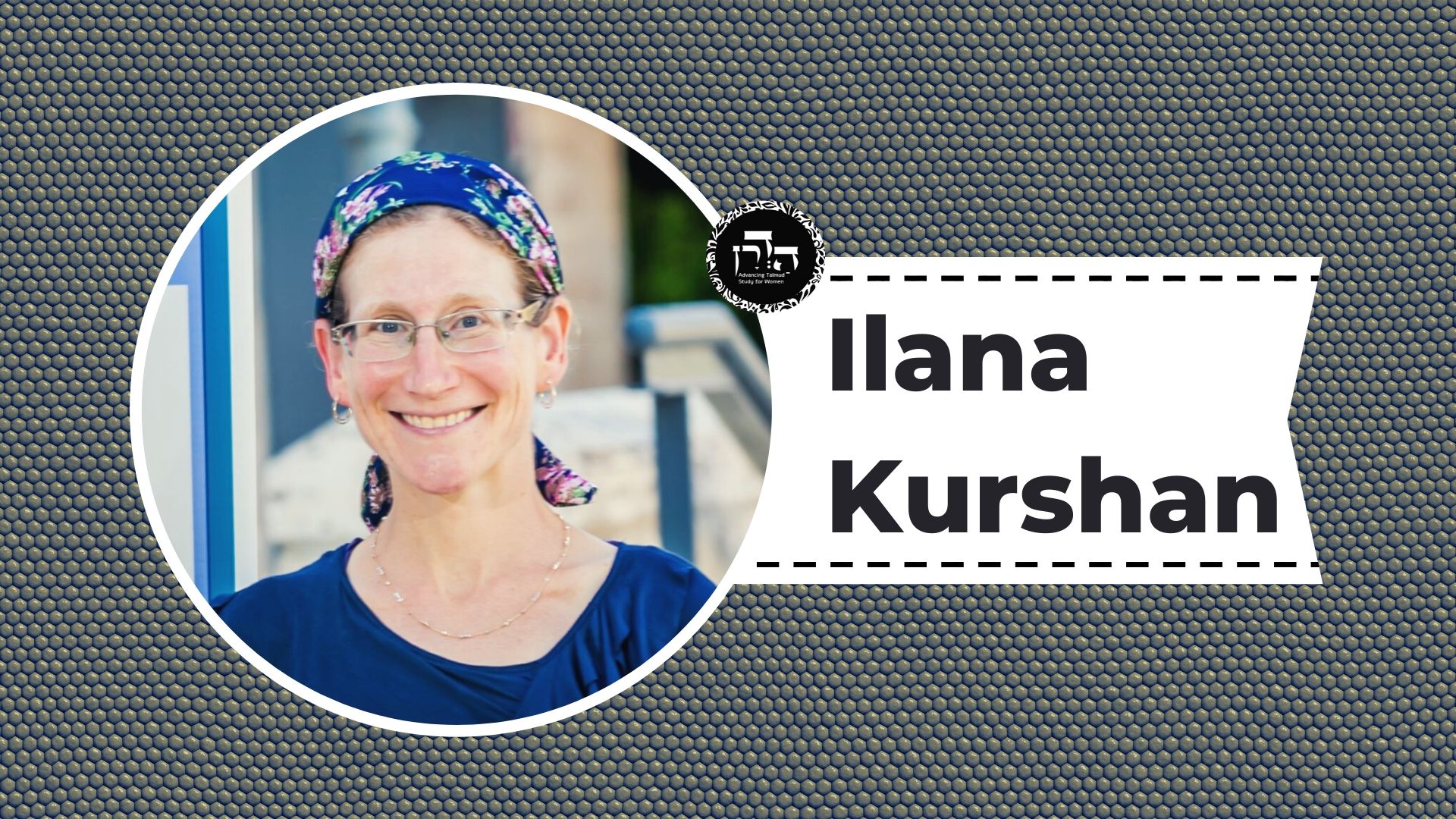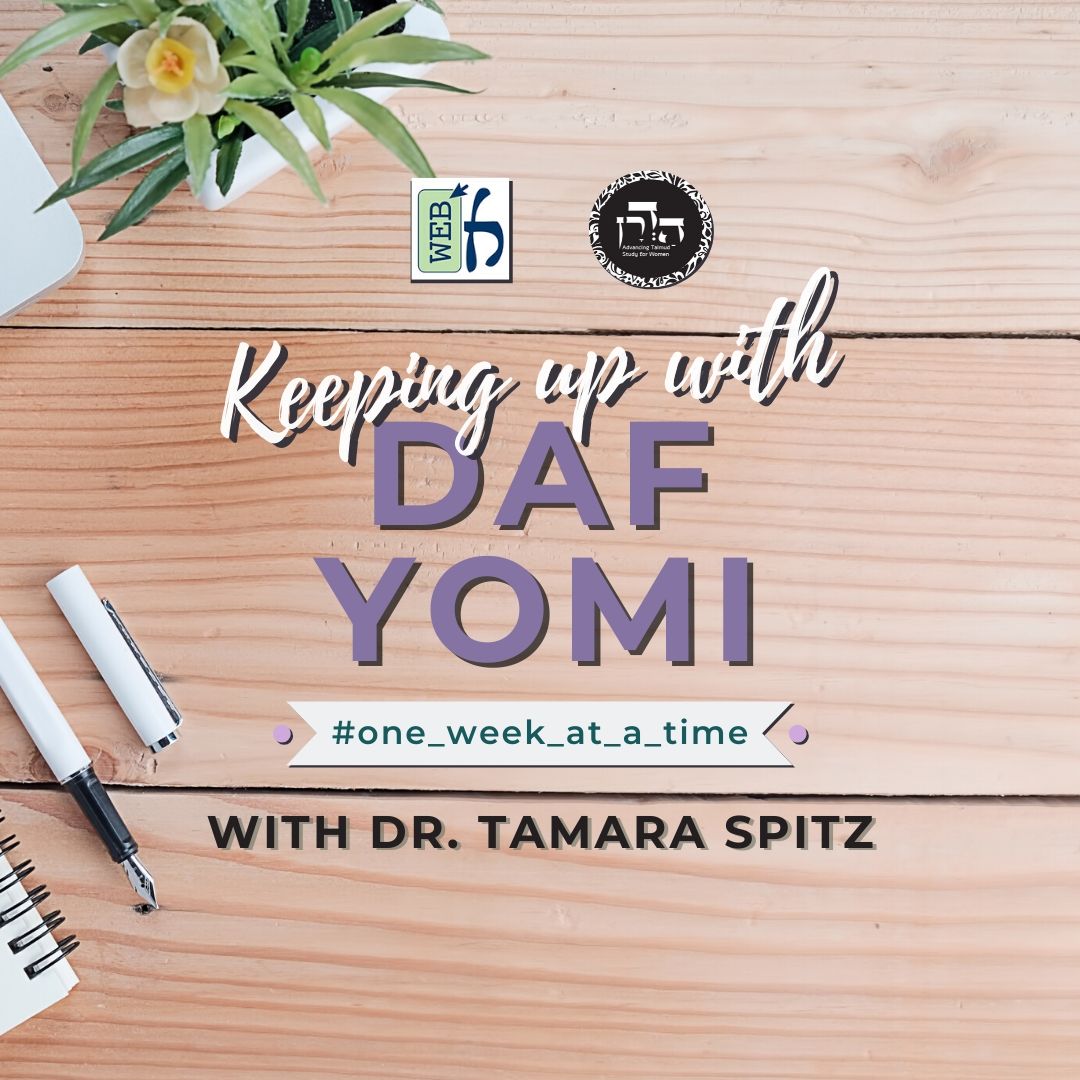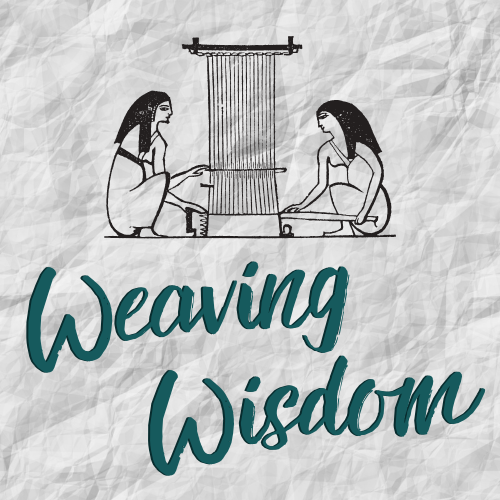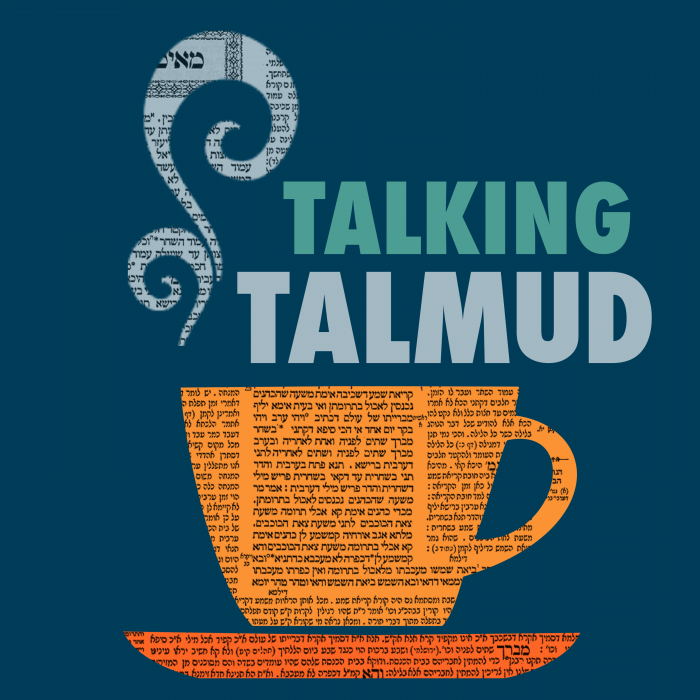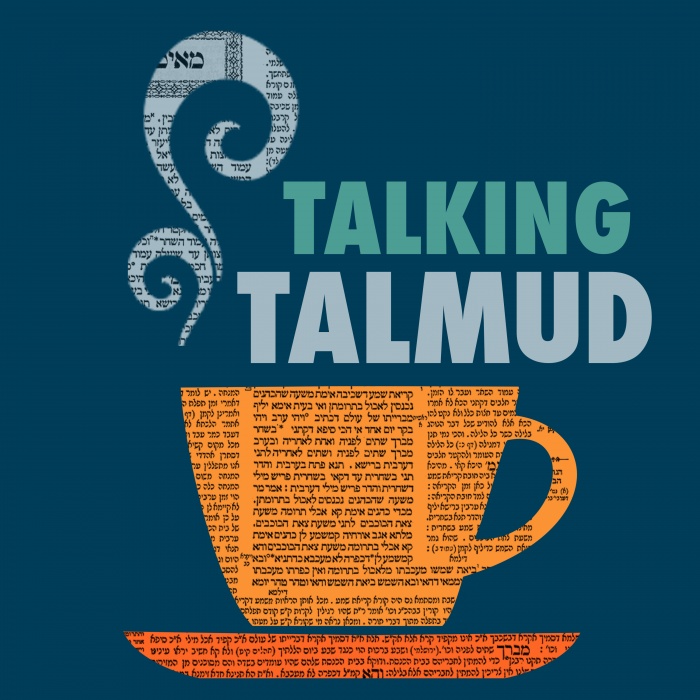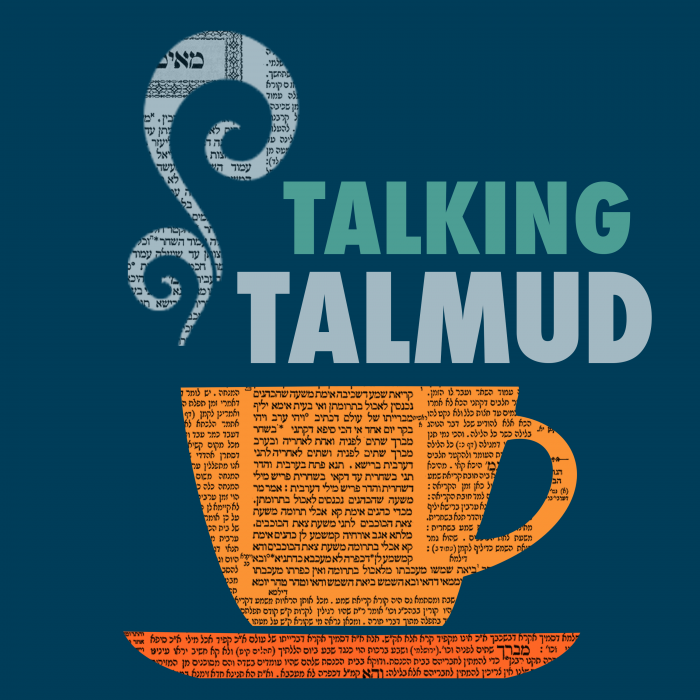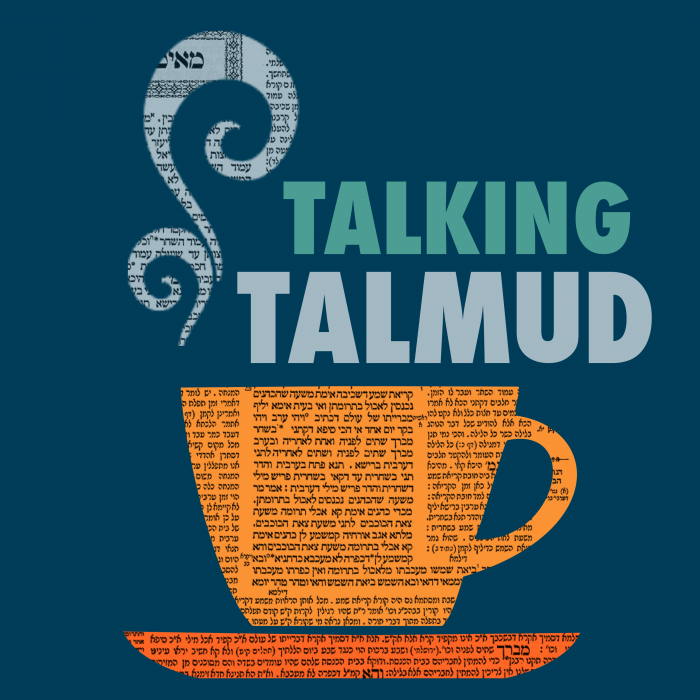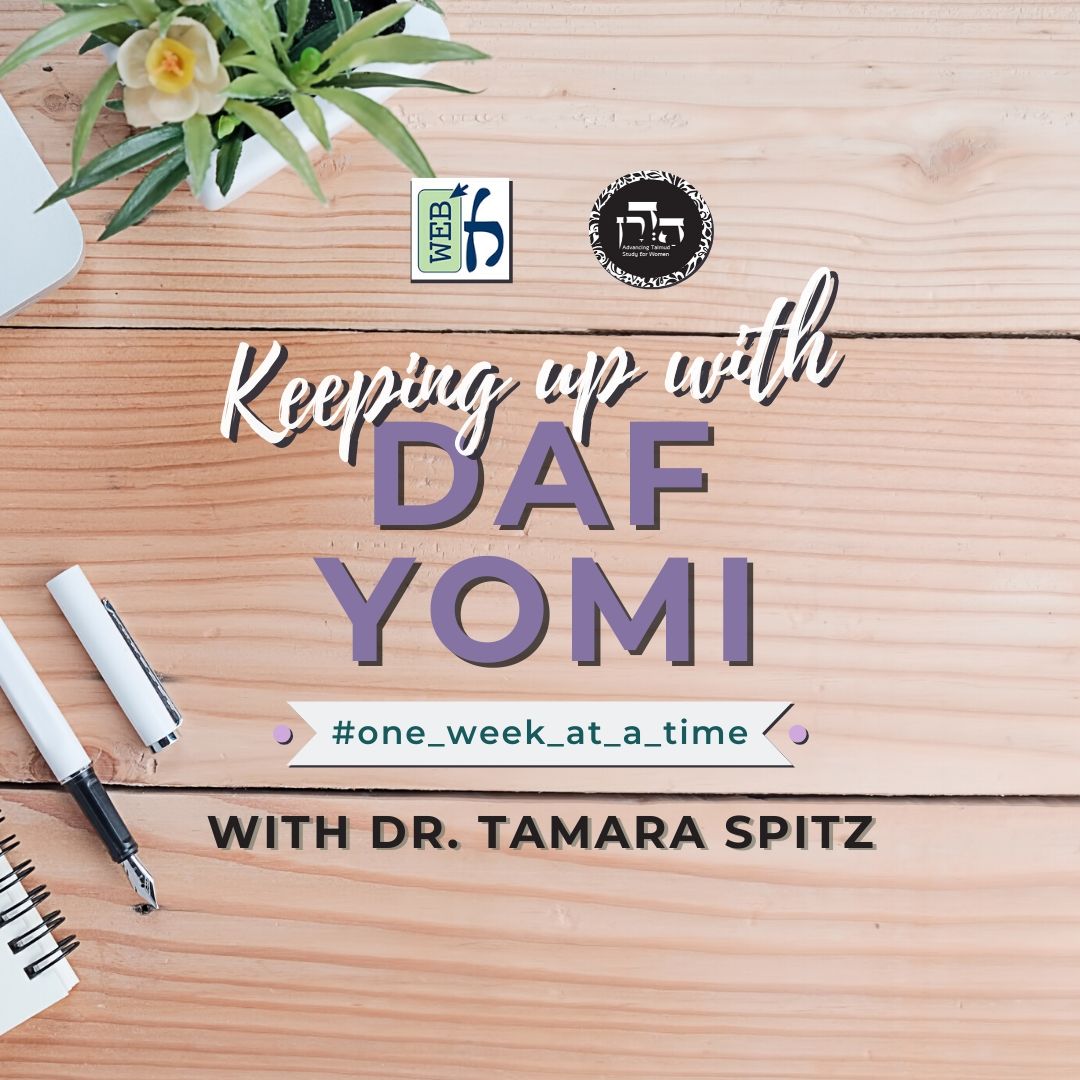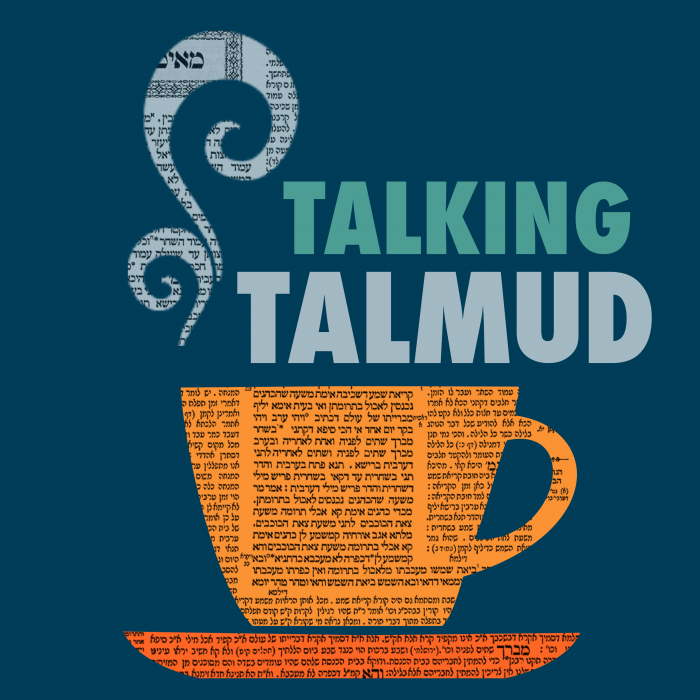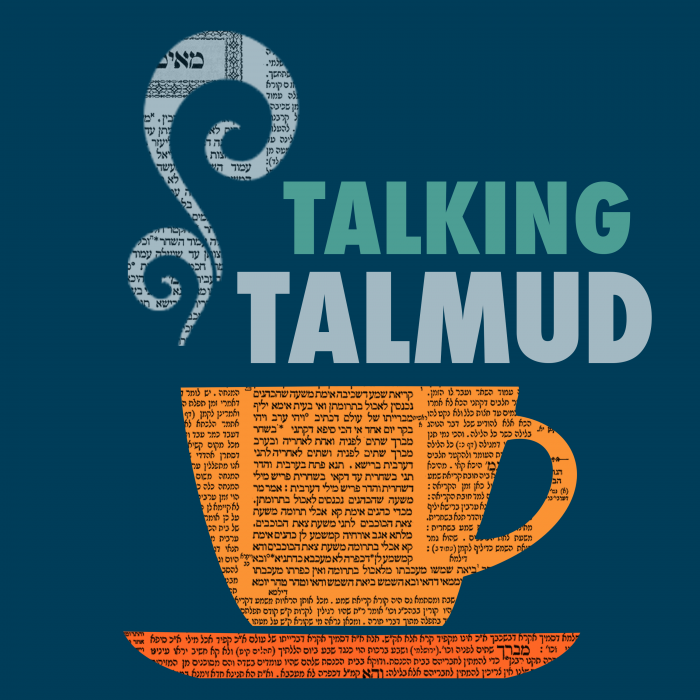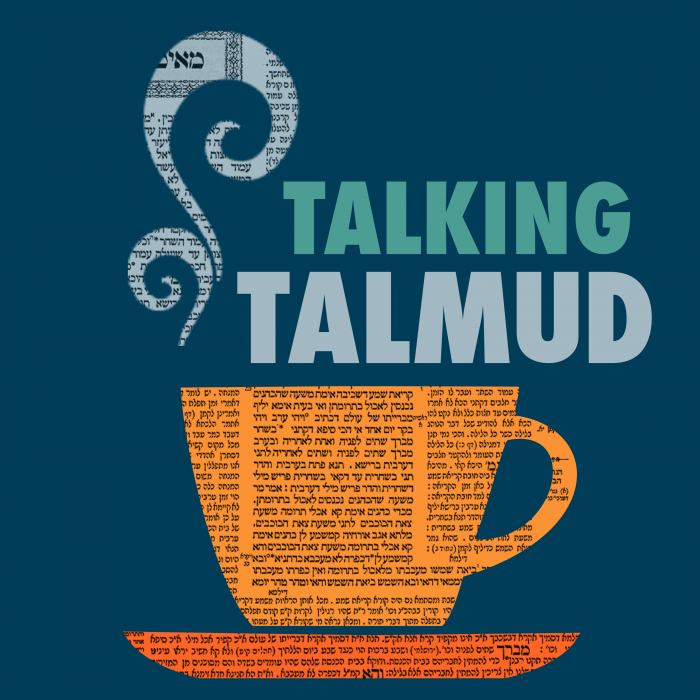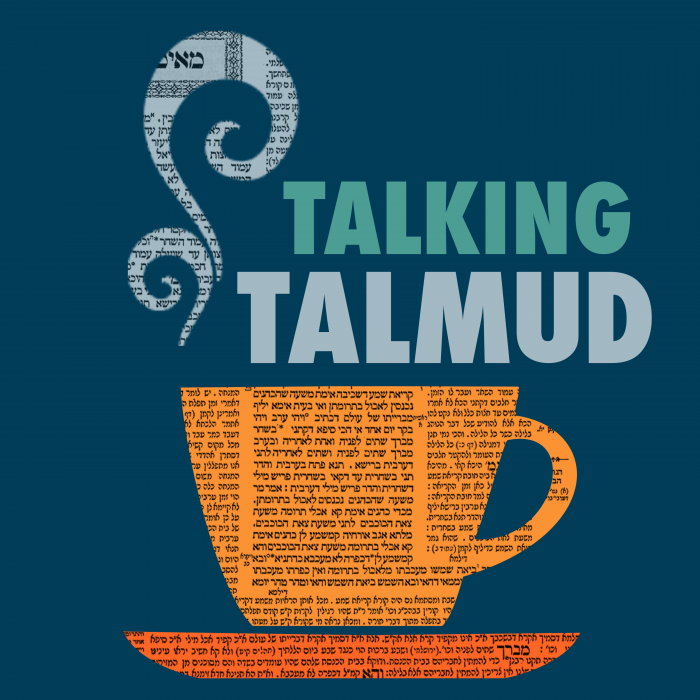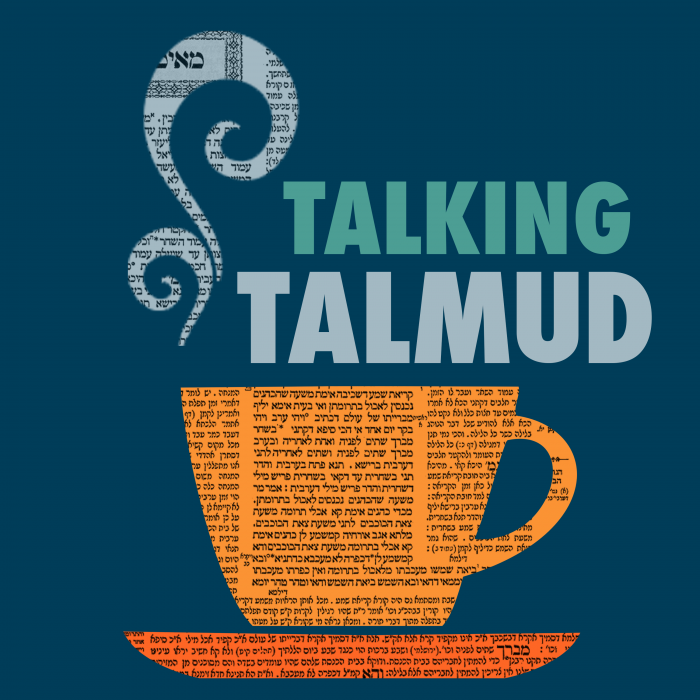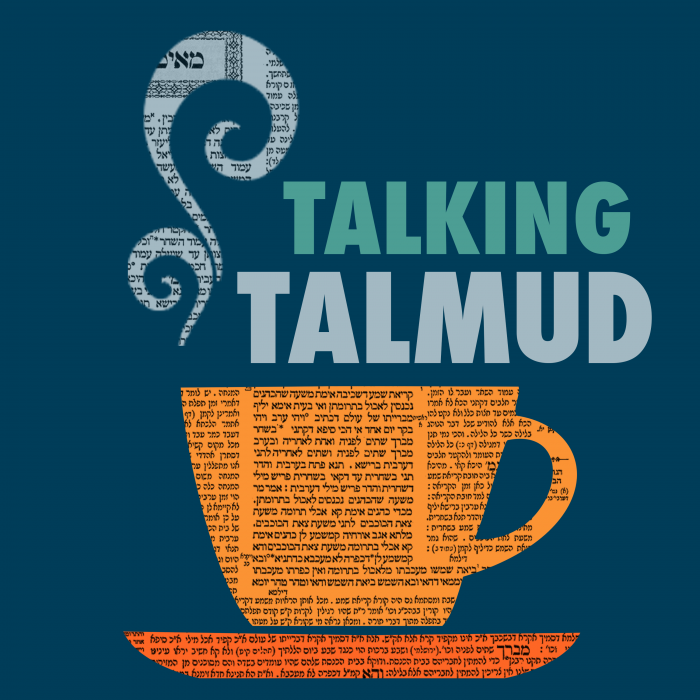Can one put eggs in a mustard strainer on Shabbat – why? If the mustard (oil or wine made from mustard) was kneaded in its own liquids before Shabbat, can one add liquid and mix it on Shabbat or is it a problem of kneading? Is there a difference if it is done with a utensil or by hand? Other drinks that people prepare in a way that involves kneading or may be used for medicinal purposes are discussed – can they be prepare don Shabbat or not? If one needs to take medicine for a number of days in a row, can one prepare the medicine on Shabbat? Can one rub a garment after laundering which was meant both to soften and to whiten – which is the main reason it is done? If for whitening, it would be forbidden. Rav Hisda has a long list of advice including financial, food-related, marital advice to his daughters, etc. Can one sweep the feeding trough of an animal on Shabbat? On what does it depend? Can one move food from one animal to another? It depends from which animal to which – how?
This week’s learning is sponsored for the merit and safety of Haymanut (Emuna) Kasau, who was 9 years old when she disappeared from her home in Tzfat two years ago, on the 16th of Adar, 5784 (February 25, 2024), and whose whereabouts remain unknown.
This week’s learning is dedicated of the safety of our nation, the soldiers and citizens of Israel, and for the liberation of the Iranian people. May we soon see the realization of “ליהודים היתה אורה ושמחה וששון ויקר”.
This week’s learning is sponsored for the merit and safety of Haymanut (Emuna) Kasau, who was 9 years old when she disappeared from her home in Tzfat two years ago, on the 16th of Adar, 5784 (February 25, 2024), and whose whereabouts remain unknown.
Want to dedicate learning? Get started here:


Today’s daily daf tools:
This week’s learning is sponsored for the merit and safety of Haymanut (Emuna) Kasau, who was 9 years old when she disappeared from her home in Tzfat two years ago, on the 16th of Adar, 5784 (February 25, 2024), and whose whereabouts remain unknown.
This week’s learning is dedicated of the safety of our nation, the soldiers and citizens of Israel, and for the liberation of the Iranian people. May we soon see the realization of “ליהודים היתה אורה ושמחה וששון ויקר”.
This week’s learning is sponsored for the merit and safety of Haymanut (Emuna) Kasau, who was 9 years old when she disappeared from her home in Tzfat two years ago, on the 16th of Adar, 5784 (February 25, 2024), and whose whereabouts remain unknown.
Today’s daily daf tools:
Delve Deeper
Broaden your understanding of the topics on this daf with classes and podcasts from top women Talmud scholars.
New to Talmud?
Check out our resources designed to help you navigate a page of Talmud – and study at the pace, level and style that fits you.
The Hadran Women’s Tapestry
Meet the diverse women learning Gemara at Hadran and hear their stories.
Shabbat 140
לְפִי שֶׁאֵין עוֹשִׂין אוֹתָהּ אֶלָּא לְגָוֶון.
Because it is only made to enhance the color of the food. That does not negate the egg-white as significant food in the sense that it would be considered waste, and therefore, no actual selection is performed.
אִיתְּמַר. חַרְדָּל שֶׁלָּשׁוֹ מֵעֶרֶב שַׁבָּת, לְמָחָר, אָמַר רַב: מְמַחוֹ בִּכְלִי אֲבָל לֹא בַּיָּד.
It is stated: With regard to mustard that one kneaded on Shabbat eve, on the following day, Shabbat, Rav said: One may dissolve it in wine or water with a vessel, but not with his hand, as using a vessel diverges from the normal method of preparation.
אֲמַר לֵיהּ שְׁמוּאֵל: (בַּיָּד?!) אַטּוּ כׇּל יוֹמָא בְּיָד מְמַחוּ לֵיהּ?! מַאֲכַל חֲמוֹרִים הוּא! אֶלָּא אָמַר שְׁמוּאֵל: מְמַחוֹ בַּיָּד וְאֵינוֹ מְמַחוֹ בִּכְלִי.
Shmuel said to him: Why may he not dissolve it with his hand? Is that to say that he dissolves it with his hand every day? If it is prepared in that manner, it is donkey food. Certainly dissolving by hand is not the manner in which mustard is prepared during the week. Therefore, dissolving mustard with a vessel should not be permitted on Shabbat. Rather, Shmuel said the opposite: He may dissolve it with his hand as a divergence from the typical method of preparation, but he may not dissolve it in the usual manner, with a vessel.
אִתְּמַר. רַבִּי אֶלְעָזָר אָמַר: אֶחָד זֶה וְאֶחָד זֶה — אָסוּר. וְרַבִּי יוֹחָנָן אָמַר: אֶחָד זֶה וְאֶחָד זֶה — מוּתָּר. אַבָּיֵי וְרָבָא דְּאָמְרִי תַּרְוַיְיהוּ: אֵין הֲלָכָה כְּרַבִּי יוֹחָנָן.
It is stated that amora’im from Eretz Yisrael also disputed this issue, as Rabbi Elazar said: Both this and that, dissolving by hand and with a vessel, are prohibited; while Rabbi Yoḥanan said: Both this and that are permitted. Abaye and Rava both said: The halakha is not in accordance with the lenient opinion of Rabbi Yoḥanan.
קָם רַבִּי יוֹחָנָן בְּשִׁיטְתֵיהּ דְּרַבִּי אֶלְעָזָר, קָם רַבִּי אֶלְעָזָר בְּשִׁיטְתֵיהּ דִּשְׁמוּאֵל. אַבָּיֵי וְרָבָא דְּאָמְרִי תַּרְוַיְיהוּ: הֲלָכָה כְּרַבִּי יוֹחָנָן.
Subsequently, Rabbi Yoḥanan stood and adopted the opinion of Rabbi Elazar and prohibited both methods of dissolving. Rabbi Elazar stood and adopted the opinion of Shmuel, who prohibited using a vessel but permitted it by hand. Given these stances, Abaye and Rava both said: The halakha is in accordance with the opinion of Rabbi Yoḥanan, who prohibited both methods.
אִימֵּיהּ דְּאַבָּיֵי עֲבַדָא לֵיהּ, וְלָא אֲכַל. דְּבֵיתְהוּ דִּזְעִירָא עֲבַדָא לֵיהּ לְרַב חִיָּיא בַּר אָשֵׁי, וְלָא אֲכַל. אֲמַרָה לֵיהּ: לְרַבָּךְ עֲבַדִי לֵיהּ וַאֲכַל, וְאַתְּ לָא אָכְלַתְּ? אָמַר רָבָא בַּר שְׁבָא: הֲוָה קָאֵימְנָא קַמֵּיהּ דְּרָבִינָא וּבְחַשִׁי לֵיהּ בְּשׁוּפְתָּא דְתוּמָא וַאֲכַל.
The Gemara relates: Abaye’s mother, actually his foster mother, prepared mustard for him, and he did not eat it. Ze’eira’s wife prepared mustard for Rav Ḥiyya bar Ashi, her husband’s student, and he did not eat it. She said to him: I made this for your rabbi and he ate it, and you do not eat it? Rava bar Shabba said: I was standing before Ravina, and they stirred mustard for him with the inner part of the garlic, and he ate it.
אָמַר מָר זוּטְרָא: לֵית הִלְכְתָא כְּכׇל הָנֵי שְׁמַעְתָּתָא, אֶלָּא כִּי הָא דְּאִתְּמַר: חַרְדָּל שֶׁלָּשׁוֹ מֵעֶרֶב שַׁבָּת, לְמָחָר מְמַחוֹ בֵּין בַּיָּד בֵּין בִּכְלִי וְנוֹתֵן לְתוֹכוֹ דְּבַשׁ. וְלֹא יִטְרוֹף, אֶלָּא מְעָרֵב.
Mar Zutra said: The halakha is not in accordance with any of these statements. Rather, it is in accordance with this one, as it was stated: Mustard that one kneaded on Shabbat eve, on the following day he may dissolve it either by hand or with a vessel, and he may place honey in it. And when he dissolves it he may not beat it forcefully as would a craftsman, but he may mix it gently.
שַׁחֲלַיִים שֶׁשְּׁחָקָן מֵעֶרֶב שַׁבָּת, לְמָחָר נוֹתֵן לְתוֹכָן שֶׁמֶן וָחוֹמֶץ, וּמַמְשִׁיךְ לְתוֹכָן אַמִּיתָא. וְלֹא יִטְרוֹף אֶלָּא מְעָרֵב. שׁוּם שֶׁרִיסְּקוֹ מֵעֶרֶב שַׁבָּת, לְמָחָר נוֹתֵן לְתוֹכוֹ פּוֹל וּגְרִיסִין, וְלֹא יִשְׁחוֹק אֶלָּא מְעָרֵב, וּמַמְשִׁיךְ אֶת אַמִּיתָא לְתוֹכָן. מַאי אַמִּיתָא? נִינְיָיא. אָמַר אַבָּיֵי: שְׁמַע מִינַּהּ הַאי נִינְיָיא מְעַלְּיָא לְתַחְלֵי.
Cress that one ground on Shabbat eve, on the following day he may place oil and vinegar in it, and add amita into the mixture, and he may not beat it, but he may mix it. Similarly, garlic that one crushed on Shabbat eve, on the following day, he may place beans and grits in it, and he may not pound, but mix, and he may add amita into the mixture. The Gemara asks: What is amita? The Gemara answers: It is mint. Abaye said: Learn from this that adding mint is beneficial for cress.
וְעוֹשִׂין אֵנוֹמֵלִין בְּשַׁבָּת. תָּנוּ רַבָּנַן: עוֹשִׂין אֵנוֹמֵלִין בְּשַׁבָּת, וְאֵין עוֹשִׂין אֲלוּנְטִית. וְאֵיזוֹ הִיא אֵנוֹמֵלִין וְאֵיזוֹ הִיא אֲלוּנְטִית? אֵנוֹמֵלִין יַיִן וּדְבַשׁ וּפִלְפְּלִין. אֲלוּנְטִית יַיִן יָשָׁן וּמַיִם צְלוּלִין וַאֲפַרְסְמוֹן, דְּעָבְדִי לְבֵי מַסּוּתָא לְמֵיקַר.
We also learned in the mishna: One may prepare anumlin on Shabbat. The Sages taught in a baraita: One may prepare anumlin on Shabbat. However, one may not prepare aluntit. The baraita explains: And what is anumlin and what is aluntit? Anumlin is a drink, which is a mixture of wine, honey, and pepper. Aluntit is a mixture of aged wine and clear water and balsam, which they prepare for use after bathing in a bathhouse to cool down from the heat of the bathhouse. It is prohibited to prepare it on Shabbat because it is a form of remedy.
אָמַר רַב יוֹסֵף: זִימְנָא חֲדָא עַלִּית בָּתַר מָר עוּקְבָא לְבֵי בָאנֵי. כִּי נְפַקִי, אֲתַאי אַשְׁקְיַין חַמְרָא חַד כָּסָא, וְחַשִּׁי מִבִּינְתָא דְרֵאשִׁי וְעַד טוּפְרָא דְכַרְעִי. וְאִי אַשְׁקְיַין כָּסָא אַחֲרִינָא — הֲוַאי מִסְתְּפֵינָא דִּלְמָא מְנַכּוּ לִי מִזָּכְוָתָא דְּעָלְמָא דְּאָתֵי. וְהָא מָר עוּקְבָא דְּשָׁתֵי כׇּל יוֹמָא? שָׁאנֵי מָר עוּקְבָא דְּדָשׁ בֵּיהּ.
Rav Yosef said: On one occasion, I followed Mar Ukva into a bathhouse. When I exited, he came and gave me one cup of this wine to drink, and I felt its chill from the hairs on my head down to the toenails on my feet. And if he had given me another cup to drink, and if I would have survived it, I would have feared a reduction of my merit in the World-to-Come. The Gemara asks: Didn’t Mar Ukva drink this wine every day? How was he not harmed? The Gemara answers: Mar Ukva was different, as he grew accustomed to it.
מַתְנִי׳ אֵין שׁוֹרִין אֶת הַחִילְתִּית בְּפוֹשְׁרִין, אֲבָל נוֹתֵן לְתוֹךְ הַחוֹמֶץ. וְאֵין שׁוֹלִין אֶת הַכַּרְשִׁינִין וְלֹא שָׁפִין אוֹתָן, אֲבָל נוֹתֵן לְתוֹךְ הַכְּבָרָה אוֹ לְתוֹךְ הַכַּלְכָּלָה.
MISHNA: One may not soak asafoetida in lukewarm water to prepare a medicinal drink from it; however, one may place it into vinegar like a standard spice. And one may not soak vetches in water in order to separate them from their chaff, nor rub them by hand so as to remove their chaff. However, one may place them into a sieve or into a basket, and if the chaff gets removed, so be it.
אֵין כּוֹבְרִין אֶת הַתֶּבֶן בִּכְבָרָה, וְלֹא יִתְּנֶנּוּ עַל גַּבֵּי מָקוֹם גָּבוֹהַּ בִּשְׁבִיל שֶׁיֵּרֵד הַמּוֹץ. אֲבָל נוֹטֵל הוּא בַּכְּבָרָה וְנוֹתֵן לְתוֹךְ הָאֵיבוּס.
One may not sift straw in a sieve, and similarly, one may not place it on a high place so that that the chaff blows away in the wind; however, one may take the straw in a sieve and place it into the trough of an animal, and one need not be concerned if the chaff is removed in the process.
גְּמָ׳ אִיבַּעְיָא לְהוּ: שָׁרָה, מַאי? תַּרְגְּמָא רַב אַדָּא נַרְשָׁאָה קַמֵּיהּ דְּרַב יוֹסֵף: שָׁרָה — חַיָּיב חַטָּאת.
GEMARA: A dilemma was raised before the Sages: If one unwittingly soaked asafoetida on Shabbat, what is the halakha? Rav Adda from the city of Naresh interpreted it before Rav Yosef: If one soaked it, he is liable to bring a sin-offering.
אֲמַר לֵיהּ אַבָּיֵי: אֶלָּא מֵעַתָּה שְׁרָה אוּמְצָא בְּמַיָּא הָכִי נָמֵי דְּמִיחַיַּיב? אֶלָּא אָמַר אַבָּיֵי: מִדְּרַבָּנַן — שֶׁלֹּא יַעֲשֶׂה כְּדֶרֶךְ שֶׁהוּא עוֹשֶׂה בַּחוֹל.
Abaye said to him: But if that is so, if one soaked a piece of meat in water, would you also say that he is liable? No cooking was performed at all. Rather, Abaye said: It is prohibited by rabbinic decree, so that one will not conduct himself on Shabbat in the manner in which he conducts himself during the week.
בְּעָא מִינֵּיהּ רַבִּי יוֹחָנָן מֵרַבִּי יַנַּאי: מַהוּ לִשְׁרוֹת אֶת הַחִלְתִּית בְּצוֹנֵן? אֲמַר לֵיהּ: אָסוּר. וְהָא אֲנַן תְּנַן: אֵין שׁוֹרִין אֶת הַחִלְתִּית בְּפוֹשְׁרִין — הָא בְּצוֹנֵן מוּתָּר!
Rabbi Yoḥanan raised a dilemma before Rabbi Yannai: What is the halakha with regard to soaking asafoetida in cold water on Shabbat? Rabbi Yannai said to him: It is prohibited. Rabbi Yoḥanan asked: Didn’t we learn in the mishna: One may not soak asafoetida in lukewarm water, indicating that it is permitted to soak it in cold water?
אֲמַר לֵיהּ: אִם כֵּן מַה בֵּין לִי וְלָךְ. מַתְנִיתִין יְחִידָאָה הִיא, דְּתַנְיָא: אֵין שׁוֹרִין אֶת הַחִלְתִּית לֹא בְּחַמִּין וְלֹא בְּצוֹנֵן. רַבִּי יוֹסֵי אוֹמֵר: בְּחַמִּין — אָסוּר, בְּצוֹנֵן — מוּתָּר.
Rabbi Yannai said to him: If so, that is the difference between my knowledge and yours, as I am able to analyze the halakha more profoundly. In this case, the mishna is not a reliable source, as the mishna expresses an individual opinion. As it was taught in the Tosefta: One may neither soak asafoetida in hot water nor in cold water. Rabbi Yosei says: In hot water it is prohibited; in cold water it is permitted. The mishna that does not prohibit cold water is in accordance with the individual opinion of Rabbi Yosei, but the halakha is not ruled based on that opinion.
לְמַאי עָבְדִי לֵיהּ? לְיוּקְרָא דְלִיבָּא. רַב אַחָא בַּר יוֹסֵף חָשׁ בְּיוּקְרָא דְלִיבָּא. אֲתָא לְקַמֵּיהּ דְּמָר עוּקְבָא. אֲמַר לֵיהּ: זִיל שְׁתִי תְּלָתָא תִּיקְלֵי חִילְתִּיתָא בִּתְלָתָא יוֹמֵי. אֲזַל אִישְׁתִּי חַמְשָׁא בְּשַׁבְּתָא וּמַעֲלֵי שַׁבְּתָא. לְצַפְרָא אֲזַל שְׁאַל בֵּי מִדְרְשָׁא. אֲמַרוּ לֵיהּ: תָּנָא דְּבֵי רַב אַדָּא, וְאָמְרִי לַהּ תָּנָא דְּבֵי מָר בַּר רַב אַדָּא: שׁוֹתֶה אָדָם קַב אוֹ קַבַּיִים וְאֵינוֹ חוֹשֵׁשׁ.
The Gemara asks: For what purpose is soaked asafoetida prepared? The Gemara answers: As a cure for heaviness of the heart. One who feels a pain in his heart drinks asafoetida. The Gemara relates: Rav Aḥa bar Yosef felt heaviness in his heart. He came before Mar Ukva to ask his advice. Mar Ukva said to him: Go drink the weight of three shekels of asafoetida in three days. He went and drank on Thursday and Shabbat eve. In the morning, he went and asked in the study hall if he could drink it on Shabbat. They said to him: The Sage from the school of Rav Adda taught, and others say, that the Sage from the school of Mar bar Rav Adda taught: A person may drink asafoetida on Shabbat, even a kav or two kav, and he need not be concerned about the decree prohibiting medicine, because asafoetida is drunk by healthy people as well.
אֲמַר לְהוּ: לִשְׁתּוֹת — לָא קָמִיבַּעְיָא לִי, כִּי קָא מִיבַּעְיָא לִי — לִשְׁרוֹת, מַאי? אֲמַר לְהוּ רַב חִיָּיא בַּר אָבִין: בְּדִידִי הֲוָה עוֹבָדָא, וַאֲתַאי שְׁאֵילְתֵּיהּ לְרַב אַדָּא בַּר אַהֲבָה וְלָא הֲוָה בִּידֵיהּ. אֲתַאי שְׁאֵילְתֵּיהּ לְרַב הוּנָא, וַאֲמַר: הָכִי קָאָמַר רַב, שׁוֹרֶה בְּצוֹנֵן וּמַנִּיחַ בַּחַמָּה.
Rav Aḥa bar Yosef said to them: With regard to drinking, I have no dilemma. When I raised a dilemma, it is with regard to soaking asafoetida; what is the halakha? Rav Ḥiyya bar Avin said to them: There was an incident that happened with me, and I came and asked that question to Rav Adda bar Ahava, and he did not have an answer for it. I came and asked Rav Huna, and he said that this is what Rav is saying: One may soak asafoetida in cold water and place it in the sun to warm it so it will be fit to drink.
כְּמַאן דְּשָׁרֵי? אֲפִילּוּ לְמַאן דְּאָסַר — הָנֵי מִילֵּי הֵיכָא דְּלָא אִישְׁתִּי כְּלָל, אֲבָל הָכָא — כֵּיוָן דְּאִישְׁתִּי חַמְשָׁא וּמַעֲלֵי שַׁבְּתָא, אִי לָא שָׁתֵי בְּשַׁבָּת — מִיסְתַּכַּן.
The Gemara asks: Was Rav’s ruling according to the opinion of the one who permitted soaking asafoetida in cold water? The Gemara answers: His ruling could be even according to the opinion of the one who prohibited doing so; this prohibition applies only when he had not drunk asafoetida at all; however, here, since he drank it on Thursday and on Shabbat eve, if he does not drink on Shabbat he would thereby be endangered. Therefore, he is permitted even to soak the asafoetida.
מִיסְתְּמִיךְ וְאָזֵיל רַב אַחָא בַּר יוֹסֵף אַכַּתְפֵּיהּ דְּרַב נַחְמָן בַּר יִצְחָק בַּר אֲחָתֵיהּ. אֲמַר לֵיהּ: כִּי מָטֵינַן לְבֵי רַב סָפְרָא עַיְּילִינַּן. כִּי מְטוֹ עַיְּילֵיהּ. בְּעָא מִינֵּיהּ: מַהוּ לְכַסְכּוֹסֵי כִּיתָּנִיתָא בְּשַׁבְּתָא? לְרַכּוֹכֵי כִּיתָּנִיתָא קָא מִיכַּוֵּין — וְשַׁפִּיר דָּמֵי, אוֹ דִילְמָא לְאוֹלוֹדֵי חִיוָּרָא קָמִיכַּוֵּין — וַאֲסִיר? אֲמַר לֵיהּ: לְרַכּוֹכֵי קָא מִיכַּוֵּין וְשַׁפִּיר דָּמֵי.
The Gemara relates another incident involving Rav Aḥa bar Yosef: Rav Aḥa bar Yosef was walking and leaning on the shoulder of Rav Naḥman bar Yitzḥak, his sister’s son. Rav Aḥa said to him: When we arrive at Rav Safra’s house, bring me in. When they arrived, Rav Naḥman brought him in. Rav Aḥa then raised a dilemma before Rav Safra: What is the halakha pertaining to rubbing and thereby softening a linen shirt that is hard after being laundered on Shabbat? Does one intend to soften the shirt, and one may well do so? Or perhaps he intends to generate whiteness in the shirt, and it is prohibited? Rav Safra said to him: He intends to soften, and one may well do so.
כִּי נְפַק אֲתָא, אֲמַר לֵיהּ: מַאי בְּעָא מָר מִינֵּיהּ? אֲמַר לֵיהּ בְּעַי מִינֵּיהּ: מַהוּ לְכַסְכּוֹסֵי כִּיתָּנִיתָא בְּשַׁבְּתָא, וַאֲמַר לִי: שַׁפִּיר דָּמֵי.
When Rav Aḥa emerged and came from Rav Safra’s house, Rav Naḥman said to him: What dilemma did the Master raise before Rav Safra? Rav Aḥa said to him: I raised the following dilemma before him: What is the halakha pertaining to rubbing and thereby softening a linen shirt on Shabbat, and he said to me: One may well do so.
וְתִבְּעֵי לֵיהּ לְמָר סוּדָרָא? סוּדָרָא לָא קָא מִיבַּעְיָא לִי, דִּבְעַי מֵרַב הוּנָא וּפְשַׁט לִי.
Rav Naḥman bar Yitzḥak asked: And let the Master raise the same dilemma with regard to rubbing a scarf. He replied: I did not raise the dilemma with regard to a scarf, as I raised it before Rav Huna. And he resolved it for me and said that it is permitted (Rif).
וְתִיפְּשִׁיט לֵיהּ לְמָר מִסּוּדָרָא? אֲמַר לֵיהּ: הָתָם — מִיחְזֵי כִּי אוֹלוֹדֵי חִיוָּרָא, הָכָא — לָא מִיחְזֵי כְּאוֹלוֹדֵי חִיוָּרָא.
Rav Naḥman asked him: And let the Master resolve the dilemma with regard to a shirt from Rav Huna’s ruling with regard to a scarf. Rav Aḥa said to him: There is a difference between the cases: There, in the case of a shirt, it appears that one is generating whiteness, whereas here, in the case of a scarf, it does not appear that one is generating whiteness, as people are not so particular with the whiteness of a scarf, and one’s intention is undoubtedly to soften it.
אָמַר רַב חִסְדָּא: הַאי כִּיתָּנִיתָא
Rav Ḥisda said: With regard to this linen shirt,
מִשְׁלְפָא לְדִידַהּ מִקַּנְיָא — שְׁרֵי, קַנְיָא מִינַּהּ — אֲסִיר. אָמַר רָבָא: וְאִם כְּלִי קִיוָּאֵי הוּא — מוּתָּר.
to remove it from the reed upon which it is hanging is permitted; however, to remove the reed from it is prohibited. Since the reed is not a vessel, it is set-aside. Rava said: And if it is hung on a weaver’s vessel, it is permitted to remove the vessel as well. Although its primary function is for a prohibited labor, since it is a vessel, it may be moved.
אָמַר רַב חִסְדָּא: הַאי כִּישְׁתָּא דְיַרְקָא, אִי חַזְיָא לְמַאֲכַל בְּהֵמָה — שְׁרֵי לְטַלְטוֹלַהּ, וְאִי לָא — אֲסִיר.
Rav Ḥisda said: This bundle of vegetables, if it is suitable for animal food, it is permitted to move it on Shabbat, but if not, it is prohibited to move it.
אָמַר רַב חִיָּיא בַּר אָשֵׁי אָמַר רַב: הַאי תַּלְיָא, דְבִשְׂרָא — שְׁרֵי לְטַלְטוֹלֵהּ, דְּכַוְורֵי — אֲסִיר.
Rav Ḥiyya bar Ashi said that Rav said as follows: In the case of this hook, if it is used for hanging meat, it is permitted to move it, as it is also suitable for other uses. However, if it is a hook for hanging fish, it is prohibited to move it, because it smells bad (Rabbeinu Ḥananel) and is used exclusively for fish.
אָמַר רַב קַטִּינָא: הָעוֹמֵד בָּאֶמְצַע הַמִּטָּה, כְּאִילּוּ עוֹמֵד בִּכְרֵיסָהּ שֶׁל אִשָּׁה. וְלָאו מִילְּתָא הִיא.
Rav Ketina said: One who stands on a board in the middle of a bed, it is as though he were standing on the stomach of a woman. Just as he would certainly injure the woman, he will certainly break the bed (ge’onim). The Gemara comments: And it is not a correct matter, and it is not accepted as halakha.
וְאָמַר רַב חִסְדָּא: בַּר בֵּי רַב דְּזָבֵין יַרְקָא — לִיזְבֵּין אֲרִיכָא, כִּישָּׁא כִּי כִישָּׁא, וְאוּרְכָּא מִמֵּילָא.
On the topic of the bundle of vegetables, the Gemara cites additional advice on similar issues that Rav Ḥisda said to poor scholars experiencing difficulty earning a livelihood: A student of a Torah academy who buys vegetables should buy long ones. A bundle is a bundle, and they have a standard thickness at a standard price. However, the addition of length comes on its own for free.
וְאָמַר רַב חִסְדָּא: בַּר בֵּי רַב דְּזָבֵין קַנְיָא — לִיזְבֵּין אֲרִיכָא, טוּנָא כִּי טוּנָא, וְאוּרְכָּא מִמֵּילָא.
And Rav Ḥisda also said: A student of a Torah academy who buys reeds should buy long ones, since a bundle is a bundle. Bundles of reeds have a standard thickness, but the length comes on its own for free.
וְאָמַר רַב חִסְדָּא: בַּר בֵּי רַב [דְּלָא נְפִישָׁא לֵיהּ רִיפְתָּא] — לָא לֵיכוֹל יַרְקָא, מִשּׁוּם דְּגָרֵיר. וְאָמַר רַב חִסְדָּא: אֲנָא לָא בַּעֲנִיּוּתִי אֲכַלִי יַרְקָא, וְלָא בְּעַתִּירוּתִי אֲכַלִי יַרְקָא. בַּעֲנִיּוּתִי — מִשּׁוּם דְּגָרֵיר. בְּעַתִּירוּתִי — דְּאָמֵינָא: הֵיכָא דְּעָיֵיל יַרְקָא, לֵיעוּל בִּשְׂרָא וְכַוְורֵי.
And Rav Ḥisda further said: A student of a Torah academy who does not have much bread should not eat a vegetable, because it whets the appetite. And Rav Ḥisda said: I neither ate a vegetable in my state of poverty, nor did I eat a vegetable in my state of wealth. In my poverty, I did not eat a vegetable because it whets the appetite. In my wealth, I did not eat a vegetable because I said: Where a vegetable enters, let meat and fish enter instead.
וְאָמַר רַב חִסְדָּא: בַּר בֵּי רַב דְּלָא נְפִישָׁא לֵיהּ רִיפְתָּא — לָא לִיבְצַע בַּצּוֹעֵי. (וְאָמַר רַב חִסְדָּא: בַּר בֵּי רַב דְּלָא נְפִישָׁא לֵיהּ רִיפְתָּא — לָא לִיבְצַע. מַאי טַעְמָא? — דְּלָא עָבֵיד בְּעַיִן יָפָה.) וְאָמַר רַב חִסְדָּא: אֲנָא מֵעִיקָּרָא לָא הֲוַאי בָּצַעְנָא עַד דִּשְׁדַאי יָדִי בְּכוּלֵּי מָנָא, וְאַשְׁכַּחִי [בֵּיהּ כׇּל צֻרְכִּי].
And Rav Ḥisda said: A student of a Torah academy who does not have much bread should not cut it into thin slices; rather, he should eat what he has in one helping. And Rav Ḥisda said: A student of a Torah academy who does not have much bread should not break it for guests. What is the reason? As he will not do so in a generous manner. And Rav Ḥisda said: Originally, I would not break bread until I placed my hand in the entire dish to assure that I found that there was enough bread to meet my needs.
וְאָמַר רַב חִסְדָּא: הַאי מַאן דְּאֶפְשָׁר לֵיהּ לְמֵיכַל נַהֲמָא דִשְׂעָרֵי וְאָכַל דְּחִיטֵּי קָעָבַר מִשּׁוּם ״בַּל תַּשְׁחִית״. וְאָמַר רַב פָּפָּא: הַאי מַאן דְּאֶפְשָׁר לְמִישְׁתֵּי שִׁיכְרָא וְשָׁתֵי חַמְרָא — עוֹבֵר מִשּׁוּם ״בַּל תַּשְׁחִית״. וְלָאו מִילְּתָא הִיא — ״בַּל תַּשְׁחִית״ דְּגוּפָא עֲדִיף.
And Rav Ḥisda also said: One who is able to eat barley bread and nevertheless eats wheat bread violates the prohibition against wanton destruction. One who wastes resources is comparable to one who destroys items of value. And Rav Pappa said: One who is able to drink beer and nevertheless drinks wine violates the prohibition against wanton destruction. The Gemara comments: And this is not a correct matter, as the prohibition against destruction of one’s body takes precedence. It is preferable for one to care for his body by eating higher quality food than to conserve his money.
וְאָמַר רַב חִסְדָּא: בַּר בֵּי רַב דְּלֵית לֵיהּ מִשְׁחָא — נִימְשֵׁי בְּמַיָּא דַחֲרִיצִי.
And Rav Ḥisda said: A student of a Torah academy who has no oil should wash, i.e., smear himself, with ditch water, as the scum that accumulates in it is as useful as oil.
וְאָמַר רַב חִסְדָּא: בַּר בֵּי רַב דְּזָבֵין אוּמְצָא — לִיזְבֵּין אוּנְקָא, דְּאִית בֵּיהּ תְּלָתָא מִינֵי בִישְׂרָא.
And Rav Ḥisda said: A student of a Torah academy who buys meat should buy from the neck [unka], as there are three types of meat there.
וְאָמַר רַב חִסְדָּא: בַּר בֵּי רַב דְּזָבֵין כִּיתּוֹנִיתָא — לִיזְבַּן מִדִּנְהַר אַבָּא, וְנִיחַוְּורַהּ כֹּל תְּלָתִין יוֹמִין, דִּמְפַטְּיָא לֵיהּ תְּרֵיסַר יַרְחֵי שַׁתָּא, וַאֲנָא עָרְבָא. מַאי ״כִּיתּוֹנִיתָא״? — כִּיתָּא נָאָה.
And Rav Ḥisda said: A student of a Torah academy who buys a linen shirt [kitonita] should buy it from those who work by the river Abba, and should wash it every thirty days, so that it will last him for the twelve months of the year. And I guarantee that the shirt will remain in good shape. The Gemara comments: What is the meaning of kitonita? A fine class [kita], as fine clothing provide one entry into a well-dressed class of people.
וְאָמַר רַב חִסְדָּא: בַּר בֵּי רַב לָא לִיתִּיב אַצִּיפְּתָא חַדְתָּא, דִּמְכַלְּיָא מָאנֵיהּ.
And Rav Ḥisda said: A student of a Torah academy should not sit on a new mat, as its dampness ruins his garments.
וְאָמַר רַב חִסְדָּא: בַּר בֵּי רַב לָא לִישַׁדַּר מָאנֵיהּ לְאוּשְׁפִּיזֵיהּ לְחַוּוֹרֵיהּ לֵיהּ, דְּלָאו אוֹרַח אַרְעָא, דִּילְמָא חָזֵי בֵּיהּ מִידֵּי וְאָתֵי לְמִגַּנְּיָא.
And Rav Ḥisda said: A student of a Torah academy should not give his clothes to his host to wash for him, as that is not proper behavior, for the host might see something on it, such as signs of a seminal emission, and he will be demeaned in the eyes of his host.
אֲמַר לְהוּ רַב חִסְדָּא לִבְנָתֵיהּ: תִּיהְוְיָין צְנִיעָן בְּאַפֵּי גַּבְרַיְיכוּ, לָא תֵּיכְלוּן נַהֲמָא בְּאַפֵּי גַבְרַיְיכוּ.
After citing Rav Ḥisda’s recommendations to students, the Gemara cites his advice to his daughters. Rav Ḥisda said to his daughters: Be modest before your husbands; do not eat bread before your husbands, lest you eat too much and be demeaned in their eyes.
לָא תֵּיכְלוּן יַרְקָא בְּלֵילְיָא, לָא תֵּיכְלוּן תַּמְרֵי בְּלֵילְיָא, וְלָא תִּשְׁתּוֹן שִׁיכְרָא בְּלֵילְיָא, וְלָא תִּיפְּנוֹן הֵיכָא דְּמִפְּנוּ גַּבְרַיְיכוּ.
Similarly, he advised: Do not eat vegetables at night, as vegetables cause bad breath. Do not eat dates at night and do not drink beer at night, as these loosen the bowels. And do not relieve yourself in the place where your husbands relieve themselves, so that they will not be revolted by you.
וְכִי קָא קָארֵי אִינִישׁ אַבָּבָא — לָא תֵּימְרוּן ״מַנּוּ״, אֶלָּא ״מַנִּי״.
And when a person calls at the door seeking to enter, do not say: Who is it, in the masculine form, but rather: Who is it, in the feminine form. Avoid creating the impression that you have dealings with other men.
נָקֵיט מַרְגָּנִיתָא בַּחֲדָא יְדֵיהּ וְכוּרָא בַּחֲדָא יְדֵיהּ. מַרְגָּנִיתָא — אַחְוִי לְהוּ, וְכוּרָא — לָא אַחְוִי לְהוּ עַד דְּמִיצְטַעֲרָן, וַהֲדַר אַחְוִי לְהוּ.
In order to demonstrate the value of modesty to his daughters, Rav Ḥisda held a pearl in one hand and a clod of earth in the other. The pearl he showed them immediately, and the clod of earth, he did not show them until they were upset due to their curiosity, and then he showed it to them. This taught them that a concealed object is more attractive than one on display, even if it is less valuable.
אֵין שׁוֹלִין אֶת הַכַּרְשִׁינִין. מַתְנִיתִין דְּלָא כִי הַאי תַּנָּא, דְּתַנְיָא, רַבִּי אֱלִיעֶזֶר בֶּן יַעֲקֹב אוֹמֵר: אֵין מַשְׁגִּיחִין בַּכְּבָרָה כׇּל עִיקָּר.
We learned in the mishna: One may not soak vetches in water in order to separate them from their chaff. However, one may take the straw in a sieve and place it into the trough of an animal. The Gemara comments: The mishna is not in accordance with the opinion of this tanna, as it was taught in a baraita: Rabbi Eliezer ben Ya’akov says: One may not look at a sieve at all on Shabbat, lest one come to violate the prohibited labor of selecting.
מַתְנִי׳ גּוֹרְפִין מִלִּפְנֵי הַפַּטָּם וּמְסַלְּקִין לִצְדָדִין מִפְּנֵי הָרְעִי, דִּבְרֵי רַבִּי דּוֹסָא, וַחֲכָמִים אוֹסְרִין. נוֹטְלִין מִלִּפְנֵי בְּהֵמָה זוֹ וְנוֹתְנִין לִפְנֵי בְּהֵמָה זוֹ בְּשַׁבָּת.
MISHNA: One may sweep hay from before an animal that is being fattened, and one may move hay to the sides for an animal that grazes on its own in the field (Rabbeinu Ḥananel); this is the statement of Rabbi Dosa. And the Rabbis prohibit doing so. One may take hay from before this animal and place it before that animal on Shabbat.
גְּמָ׳ אִיבַּעְיָא לְהוּ: רַבָּנַן אַרֵישָׁא פְּלִיגִי, אוֹ אַסֵּיפָא פְּלִיגִי, אוֹ אַתַּרְוַיְיהוּ פְּלִיגִי?
GEMARA: A dilemma was raised before the Sages: Do the Rabbis, who are stringent, disagree with the first clause of Rabbi Dosa’s statement, or do they disagree with the latter clause of the mishna, or do they disagree with both clauses?
תָּא שְׁמַע, דְּתַנְיָא: וַחֲכָמִים אוֹמְרִים אֶחָד זֶה וְאֶחָד זֶה — לֹא יְסַלְּקֶנּוּ לִצְדָדִין.
Come and hear a resolution from that which was taught in a baraita. And the Rabbis say: With regard to both this, hay placed before an animal set aside for fattening, and that, hay placed before an animal that grazes on its own, one may not move it to the sides. Apparently, the Rabbis rule stringently in both cases.
אָמַר רַב חִסְדָּא: מַחֲלוֹקֶת בְּאֵיבוּס שֶׁל קַרְקַע, אֲבָל בְּאֵיבוּס שֶׁל כְּלִי — דִּבְרֵי הַכֹּל מוּתָּר. וְאֵיבוּס שֶׁל קַרְקַע מִי אִיכָּא לְמַאן דְּשָׁרֵי?! הָא קָא מַשְׁוֵי גּוּמּוֹת! אֶלָּא, אִי אִיתְּמַר הָכִי אִיתְּמַר: אָמַר רַב חִסְדָּא מַחֲלוֹקֶת בְּאֵיבוּס שֶׁל כְּלִי, אֲבָל בְּאֵיבוּס שֶׁל קַרְקַע — דִּבְרֵי הַכֹּל אָסוּר.
Rav Ḥisda said: This dispute is with regard to a trough formed in the ground; however, with regard to a trough which is a vessel, everyone agrees that it is permitted. The Gemara expresses surprise: Is there anyone who permits doing so in a trough formed in the ground? Isn’t one leveling holes and thereby performing the prohibited labors of building or plowing? Rather, if it was stated, it was stated as follows: Rav Ḥisda said: This dispute applies only to a trough that is a vessel; however, with regard to a trough formed in the ground, everyone agrees that it is prohibited, due to the concern lest one level holes.
וְנוֹטְלִין מִלִּפְנֵי בְּהֵמָה. תְּנָא חֲדָא: נוֹטְלִין מִלִּפְנֵי בְּהֵמָה שֶׁפִּיהָ יָפֶה וְנוֹתְנִין לִפְנֵי בְּהֵמָה שֶׁפִּיהָ רַע. וְתַנְיָא אִידַּךְ: נוֹטְלִין מִלִּפְנֵי בְּהֵמָה שֶׁפִּיהָ רַע וְנוֹתְנִין לִפְנֵי בְּהֵמָה שֶׁפִּיהָ יָפֶה!
We also learned in the mishna: One may take hay from before this animal and place it before that animal. It was taught in one baraita: One may take hay from before an animal whose mouth is fine and place it before an animal whose mouth is foul. And it was taught in another baraita: One may take hay from before an animal whose mouth is foul and place it in front of an animal whose mouth is fine. There is an apparent contradiction between the two baraitot.
אָמַר אַבָּיֵי: אִידֵּי וְאִידֵּי מִקַּמֵּי חַמְרָא לְקַמֵּי תוֹרָא — שָׁקְלִינַן, מִקַּמֵּי תוֹרָא לְקַמֵּי חַמְרָא — לָא שָׁקְלִינַן. וְהָא דְּקָתָנֵי ״נוֹטֵל מִלִּפְנֵי בְּהֵמָה שֶׁפִּיהָ יָפֶה״ — בַּחֲמוֹר, דְּלֵית לֵיהּ רִירֵי. ״וְנוֹתְנִין לִפְנֵי בְּהֵמָה שֶׁפִּיהָ רַע״ — בְּפָרָה,
Abaye said: Both this baraita and that baraita hold that one may take hay from before a donkey and place it before an ox. However, one may not take hay from before an ox and place it before a donkey. The formulation of the baraitot can be explained as follows: That which was taught: One may take hay from before an animal whose mouth is fine, is referring to a donkey, and the reason the baraita says its mouth is fine is because it has no spittle. Therefore, the donkey does not dampen the remaining hay with its saliva. And the statement: And one may place it before an animal whose mouth is foul, is referring to a cow,



